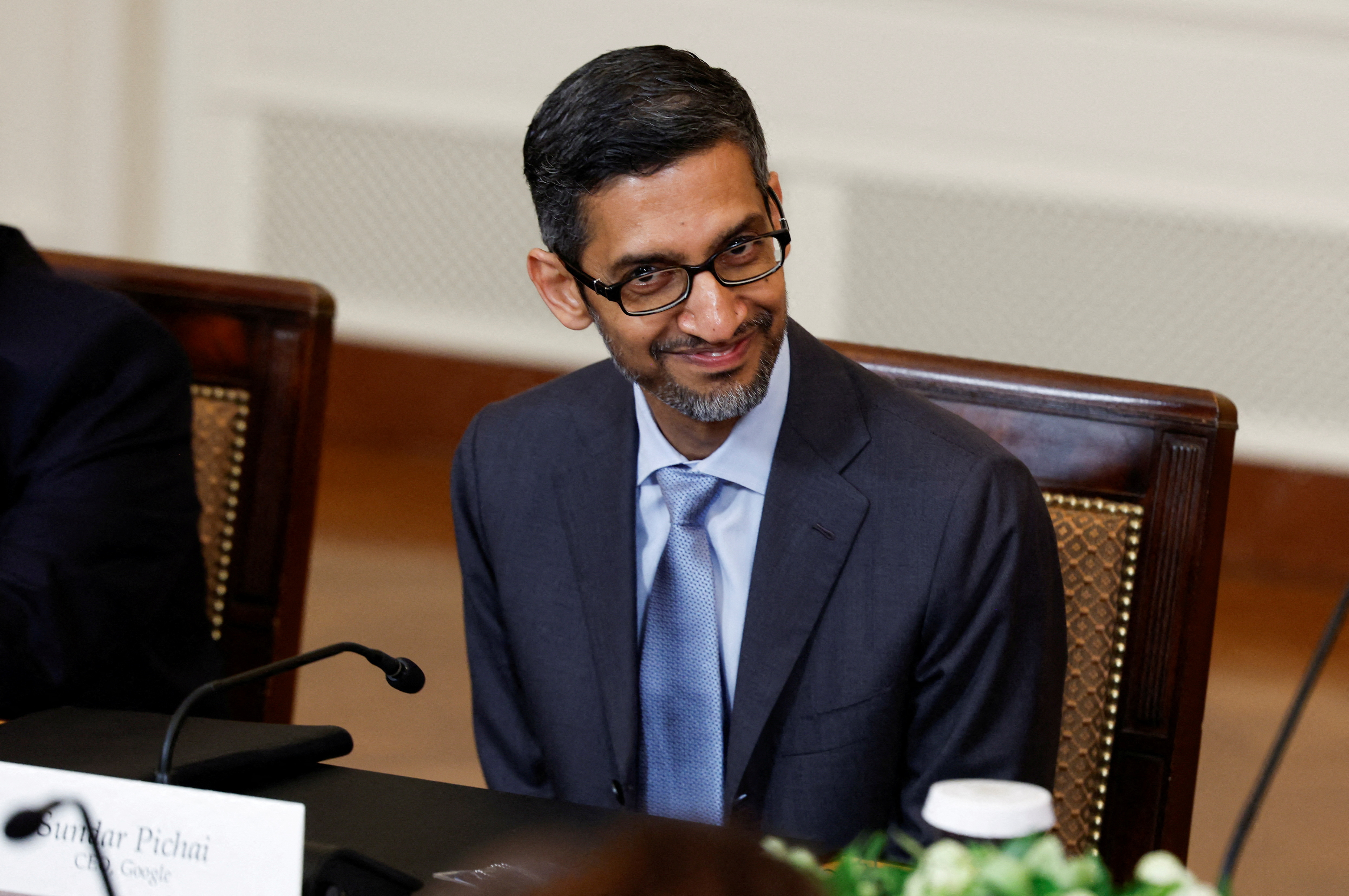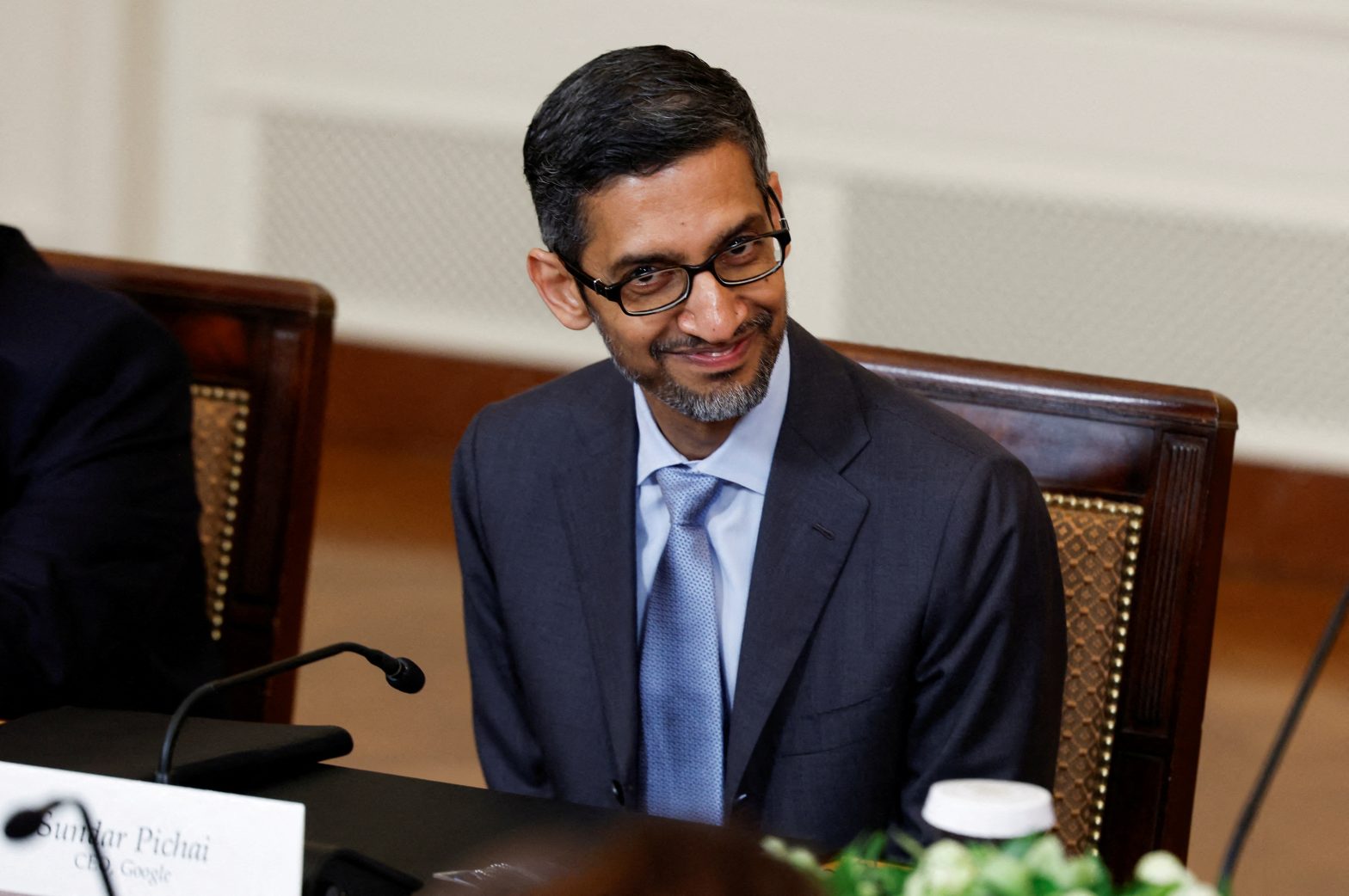
Sundar Pichai, CEO of Google, reacts during a meeting with U.S. President Joe Biden, India’s Prime Minister Narendra Modi and senior officials and CEOs of American and Indian companies in the East Room of the White House in Washington, U.S., June 23, 2023. REUTERS/Evelyn Hockstein/File Photo Acquire Licensing Rights
WASHINGTON, Oct 30 (Reuters) – Sundar Pichai, CEO of Google, criticized Microsoft’s browser Monday in a once-in-a generation antitrust fight with the U.S. government while arguing his company’s browser and internet search were easy to use and secure.
Pichai testified in a trial that will determine whether Google acted illegally to maintain its dominance of online search and parts of search advertising. If the government wins, the company may be forced to scrap some business practices that have helped it stay on top.
In testimony Monday morning, Pichai took a couple of swipes at Microsoft’s (MSFT.O) browser, Internet Explorer.
Before Google launched its Chrome browser, which competes with the Microsoft product, Pichai said, “The browser market at the time had kind of stagnated.
“They (Microsoft) were not that incented to improve the browser,” he added, calling Chrome a “pretty dramatic improvement” when it was launched in 2008.
He also said that Google made it easy to change the Chrome browser if a user wanted to use a search engine that was not Google.
Pichai, who was called as a witness for Google, will likely be asked about the company’s investments aimed at keeping its online search engine dominant, especially as smartphones took over, and innovation in search advertising.
The government, in cross-examination, will likely also ask about the billions of dollars paid annually to smartphone makers like Apple (AAPL.O) and wireless carriers like AT&T (T.N) to be the default in search on their devices in order to stay on top.
The clout in search makes Google a heavy hitter in the lucrative advertising market, its biggest revenue source.
Google has argued the revenue share agreements are legal and that it has invested heavily to keep its search and advertising businesses competitive. It has also argued that if people are dissatisfied with default search engines, they can, and do, switch to another search provider.
Reporting by Diane Bartz and Chris Sanders; Editing by Marguerita Choy and Jonathan Oatis
Our Standards: The Thomson Reuters Trust Principles.
